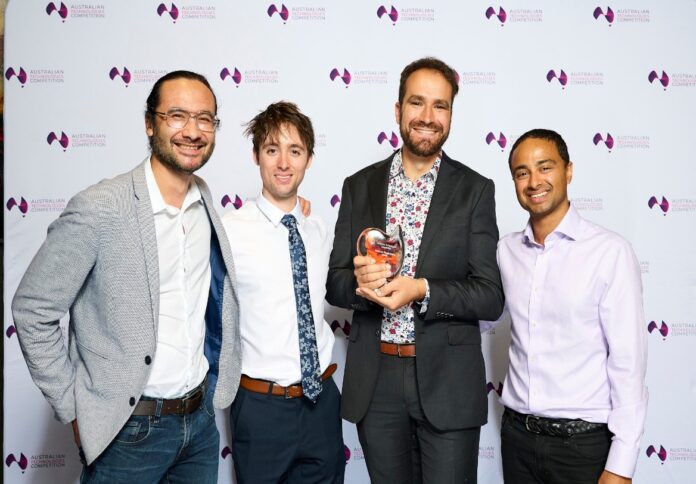
The 2023 Australian Manufacturing Competition recently crowned its champions, with Verbotics, an industrial robotics software company, taking home the top honour in the advanced manufacturing category.
The company said this win underscores the significant strides Verbotics has made in revolutionising the industrial robotics landscape within the manufacturing sector.
This year, the competition featured an advanced manufacturing category, sponsored by the NSW Department of Industry.
In an exclusive interview with Australian Manufacturing, Dr Andrew Short, technical director at Verbotics, said the company’s accomplishments at the competition have opened up new avenues.
For one, the recognition has facilitated connections with a network of innovative Australian enterprises and advisors eager to expand on a global scale.
With international expansion plans on the horizon, particularly in North America, Short said the invaluable guidance and connections from this competition are expected to play a pivotal role in Verbotics’ future growth.
In particular, Verbotics specialises in developing intelligent software for welding robots. This technology simplifies and expedites the robot programming process, offering several advantages to manufacturers.
The process begins with the analysis of a 3D model of the workpiece, identifying weld locations, and autonomously planning all robot movements, eliminating the need for human intervention.
“We make robotic automation viable where it previously was simply impossible to use, unlocking all the benefits that come along with welding automation,” Short remarked.
While Verbotics clinched victory in the advanced manufacturing category, the ultimate winner of the competition was ARIA Research, a company dedicated to creating technology that converts images into sound for individuals with visual impairments.
Other notable winners included Hypersonix Launch Systems, who excelled in the Space and Defence category and were runners-up in the Advanced Manufacturing category.
In addressing the global shortage of skilled welders, Short said the company aims to empower manufacturers to unlock the advantages of welding automation, enhancing safety, productivity, and product quality.
“More broadly, we can help make local manufacturing competitive which can improve supply chain resilience, create jobs, and reduce the need to ship parts from overseas when they can be manufactured locally competitively,” he explained.
Meanwhile, Dr Short stated that high-mix, low-volume manufacturing brings challenges to the forefront, emphasising that Verbotics has effectively addressed these hurdles with their solution.
“A major challenge is to make a piece of software that can achieve complex welding results while remaining quick and easy-to-use, which is a key focus and ongoing challenge for us,” he remarked.
Short added, “Another key challenge is to make a solution that “just works” in the real world. There’s a lot of moving parts, and it’s important for the software to make the right decisions so the end result is ready to run on the shop floor.”
In turn, he emphasised that Verbotics’ solution offers a seamless transition from digital twin models to complex robot welding, minimising the complexities of programming.
Verbotics has set its sights on the future, with plans to continue expanding internationally and cultivating partnerships with robotic system integrators.
Dr Short said their aspirations extend beyond welding, as they explore the integration of sensors into their solution, allowing users to scan parts and automatically execute welding without the need for CAD models.




















